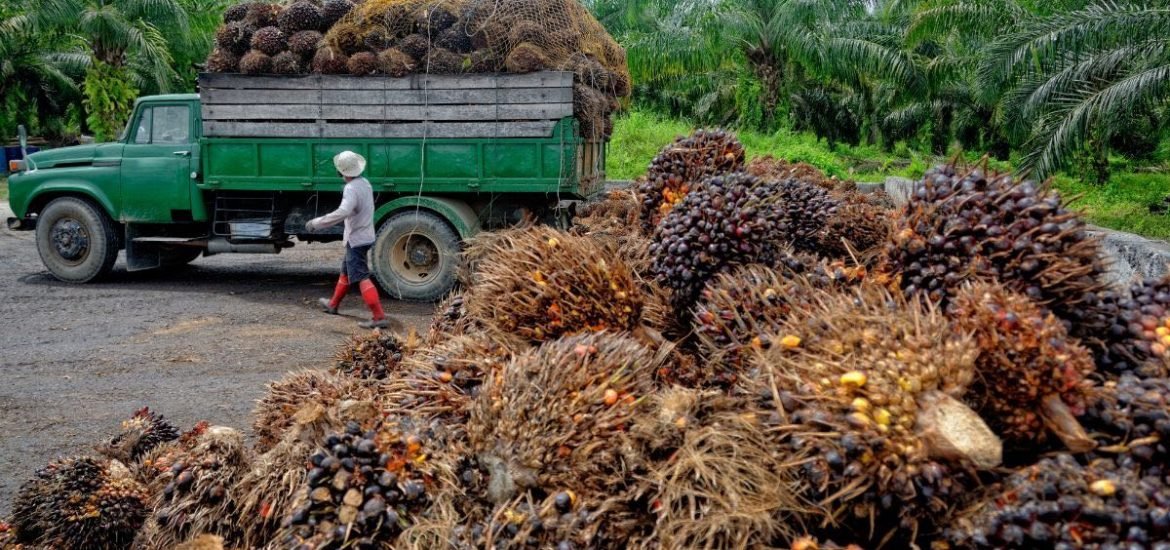
If you can’t beat them, join them. Or so the old adage goes. And that’s exactly what scientists working at the SMART Research Institute (SMATRI) in Indonesia are doing. The oil palm research institute is owned by Golden Agri-Resources (GAR) — part of Sinar Mas, one of the largest palm oil conglomerates in the world.
This unlikely collaboration allows researchers to team up with the oil palm industry for a potential win-win situation: scientists use industry funding carry out important research on biodiversity and the palm industry benefits from these insights in terms of productivity and yield. And some planters are warming to the potential benefits of increased biodiversity — a prospect previously feared.
Study plots now exist where herbicides or insecticides are not used and plantation workers weed by hand. The palm tree canopy creates shade for ferns and shrubs to grow creating homes for insects and snakes. And the palm trees benefit from this increased biodiversity as well by improving the soil, pollinate the trees, and controlling pests.
Some critics argue accepting funding from industry legitimises the industry and scientists risk losing their independence, writes Dyna Rochmyaningsih, a science journalist based in Deli Serdang, Indonesia. In her recent article published in Science, Rochmyaningsih discusses this conundrum. But many scientists have still decided to work with palm plantations “to make the best of a bad situation”, she says.
However, most plantations are still not open to the inputs environmentally-focused research. Planters worry that allowing a “semi-wilderness” to flourish around oil palm trees would affect yields by competing for water and nutrients, she explains.
What is palm oil?
Palm oil is a highly versatile oil that is resistant to oxidation. The odourless and colourless oil is stable at high temperatures and has many different properties that can be exploited. For example, palm oil is often used to make spreads more spreadable. That’s why it’s found in nearly everything from packaged foods to toothpaste, shampoos, and beauty products – even, biofuels. And it is by far the most efficient way to produce vegetable oil.
However, palm oil remains one of the most controversial crops. The lucrative industry is a major driver of deforestation and has wreaked havoc on rainforests around the world — particularly, in Indonesia and Malaysia, where around 85 per cent of the global supply comes from and vast areas have been taken over by palm oil plantations.
Plantations are established at the expense of rainforests with rich biodiversity, destroying the habitats of many species such as orangutans and pygmy elephants.
The Borneo Atlas, an online platform produced from NASA Landsat images and data on oil palm concessions, shows that in the past 20 years, around 24,000 square kilometres of forests were cleared in Borneo alone. And 1800 square kilometres have been cleared in Papua, another biodiversity hotspot.
And government policies, such as the moratorium on deforestation introduced in 2011 and the cessation of new oil palm permits, do not work well and have not ended biodiversity loss. So, why not just switch to another type of oil?
Alternatives like soybean or coconut oil would require 4 and 10 times more land and would essentially just shift the same problem to another part of the world and threaten biodiversity elsewhere. Moreover, millions of smallholder farmers depend on producing palm oil for their livelihood and the industry is crucial to economies of developing countries.
Sustainable palm oil?
The good news is that palm oil can be produced more sustainably. In 2004, the Roundtable of Sustainable Palm Oil (RSPO) — the largest, independent, third-party standard for more sustainable palm oil production — was set up in response to increasing concerns about the impact of the palm oil industry on the environment and societies.
And instead of banning palm oil production, a 2018 International Union for Conservation of Nature (IUCN) report suggests slowing down deforestation and encouraging the use of more sustainable palm oil.
The researchers at SMARTRI hope their research can improve productivity while using less land and promoting biodiversity. And one of their long-term ecological experiment called Biodiversity and Ecosystem Function in Tropical Agriculture (BEFTA) is testing just that — whether plantations can host more biodiversity without affecting yields. The team have already shown that abandoning herbicides improved the condition of the soil and increases the diversity of soil fauna like earwigs and millipedes (1).
The approach is not perfect. Collaborating with large conglomerates misses out on the small-hold farmers that make up 40 per cent of the industry, moreover, planters often dismiss the results. Nonetheless, it definitely seems to be a good start.
(1) Ashton-Butt, A. et al. Understory Vegetation in Oil Palm Plantations Benefits Soil Biodiversity and Decomposition Rates. Frontiers in Forests and Global Change (2018). DOI: 10.3389/ffgc.2018.00010